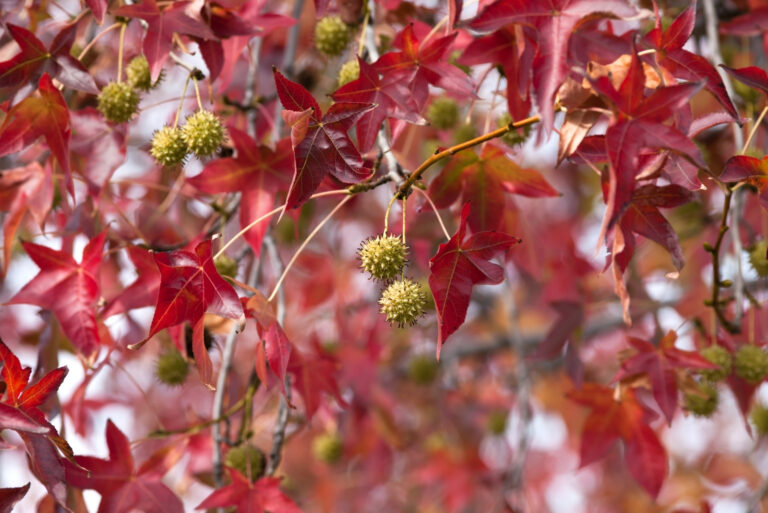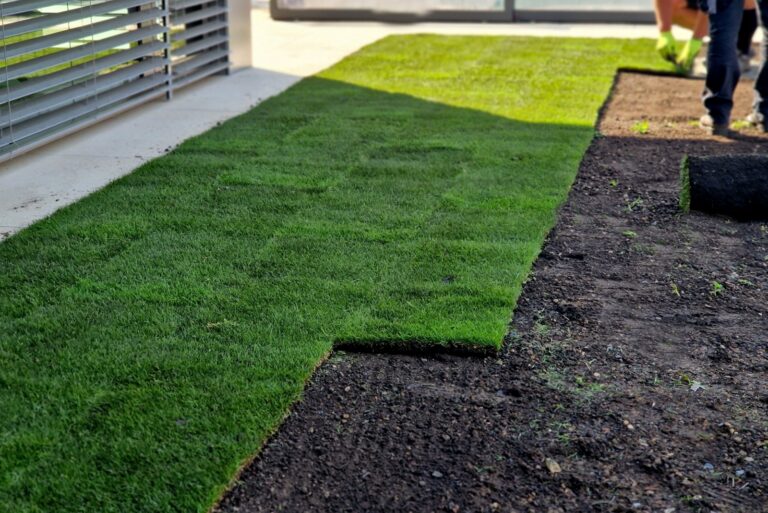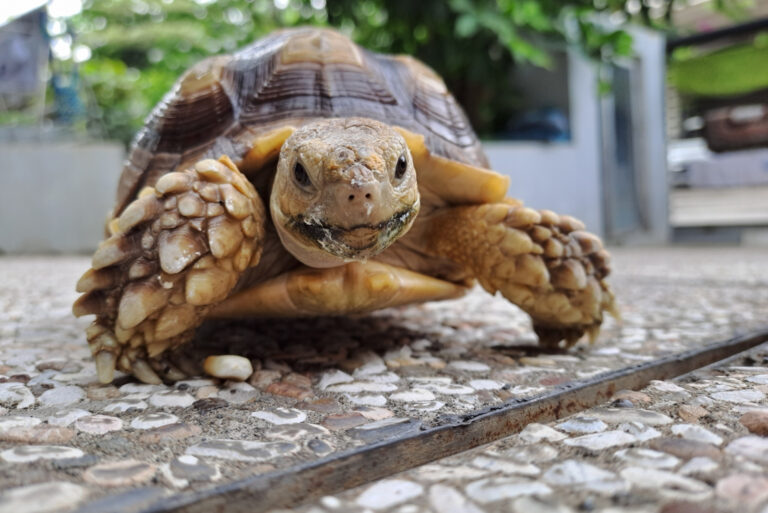10 Birdbath Mistakes In Michigan And How To Fix Them
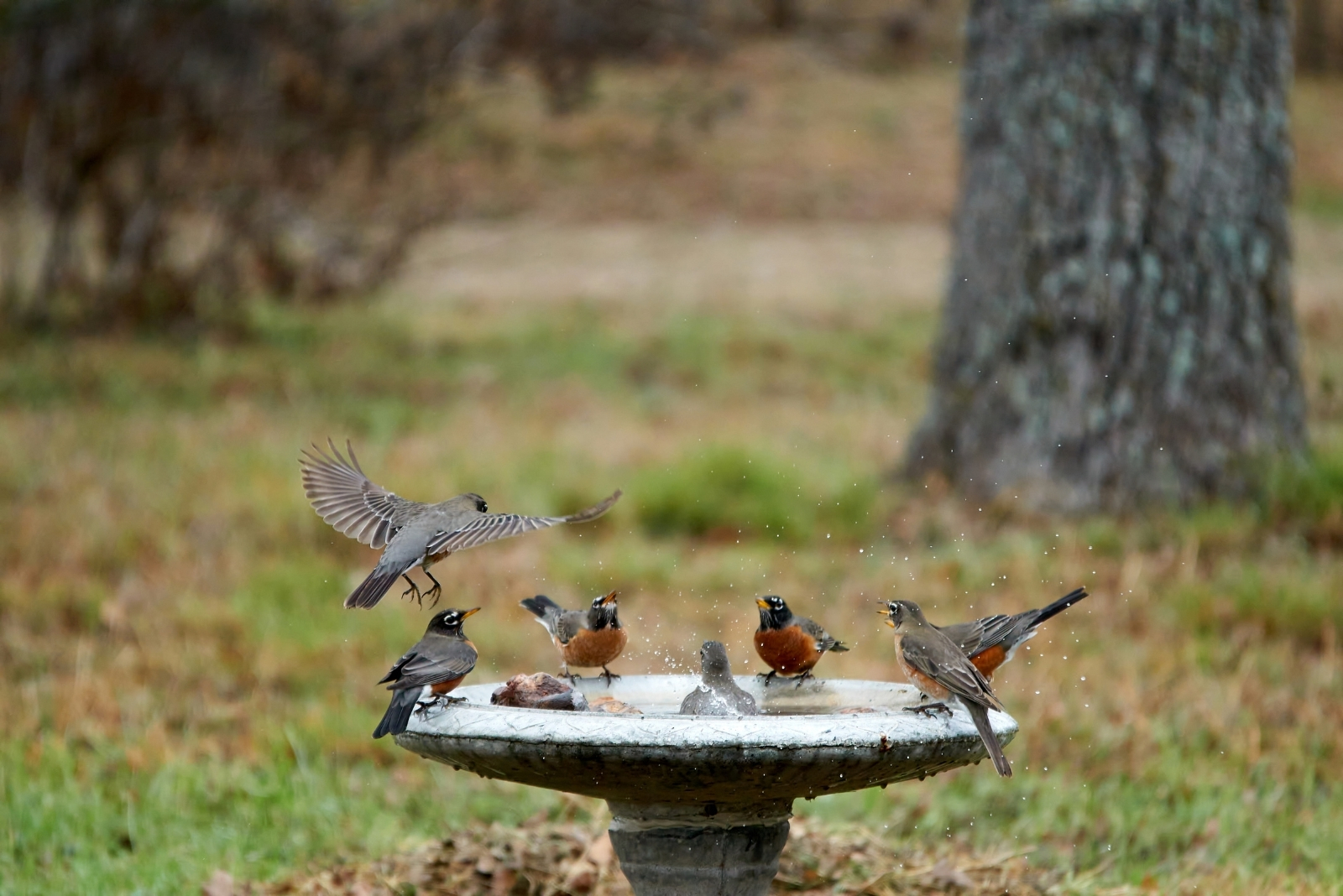
Birdbaths can bring charm and wildlife to Michigan yards, but small mistakes can make them less inviting. These 10 common errors are easy to fix once you know what to look for.
I’ve had my share of trial and error, and a few tweaks made a huge difference. Follow these tips and watch your feathered visitors flock happily to your yard.
1. Too-Deep Water
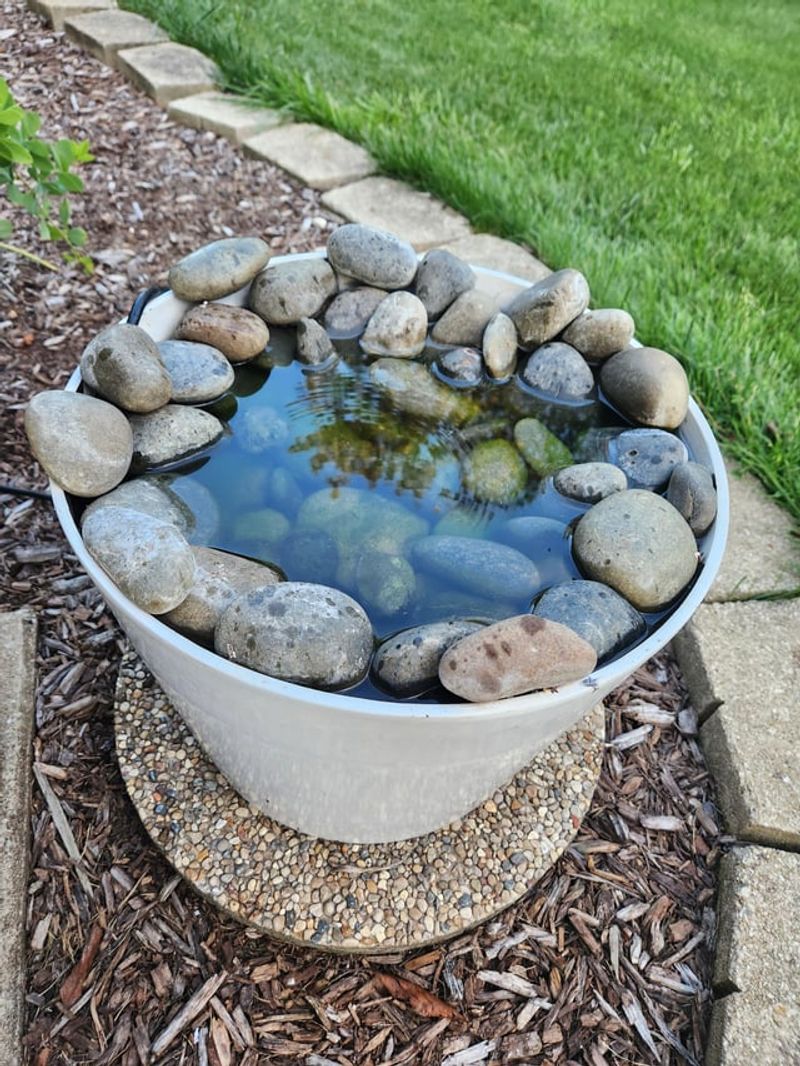
Birds in Michigan prefer shallow puddles, not swimming pools! Most backyard visitors need just 1-2 inches of water to bathe comfortably. Anything deeper becomes dangerous, especially for smaller species.
Add some decorative stones or pebbles to create varying depths. This simple fix provides safe footing for tiny chickadees while still accommodating larger Michigan visitors like blue jays.
2. Slippery Surfaces
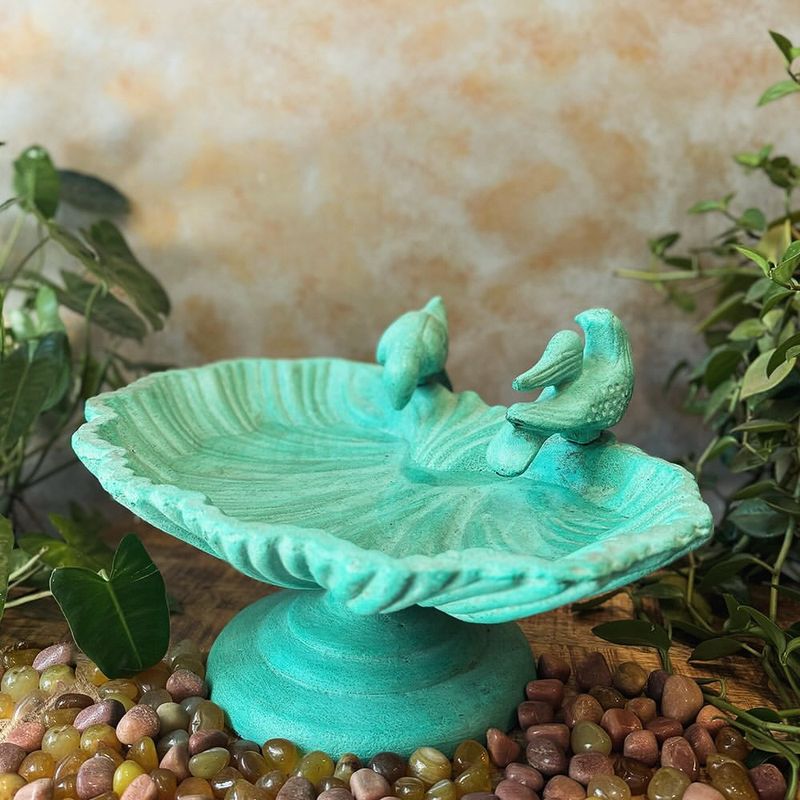
Smooth ceramic or glass birdbaths look pretty but send birds sliding! Many Michigan birds avoid these treacherous surfaces after one bad experience. Nobody wants to slip while taking a bath.
Rough up the surface with sandpaper or add a rubber bath mat with drainage holes. Michigan’s cardinals and finches will appreciate the secure footing during their splashing sessions.
3. Stagnant Water
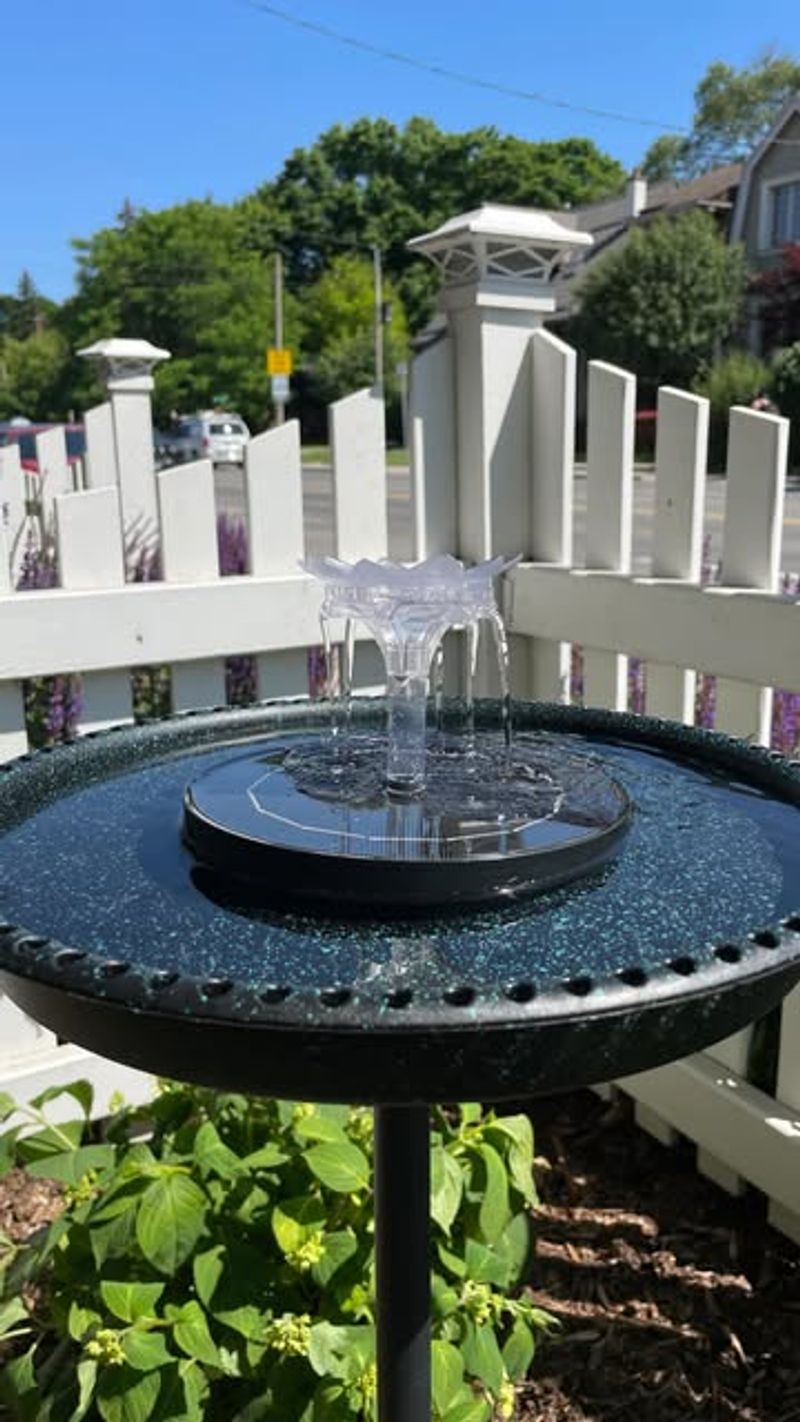
Standing water quickly becomes a mosquito nursery in Michigan’s humid summers. Birds avoid dirty water, and mosquitoes love it! The resulting insect breeding ground defeats the whole purpose.
Install a small solar fountain or bubbler to keep water moving. Michigan bird enthusiasts find this not only prevents mosquito eggs from hatching but also attracts more birds with the sound of moving water.
4. Poor Location
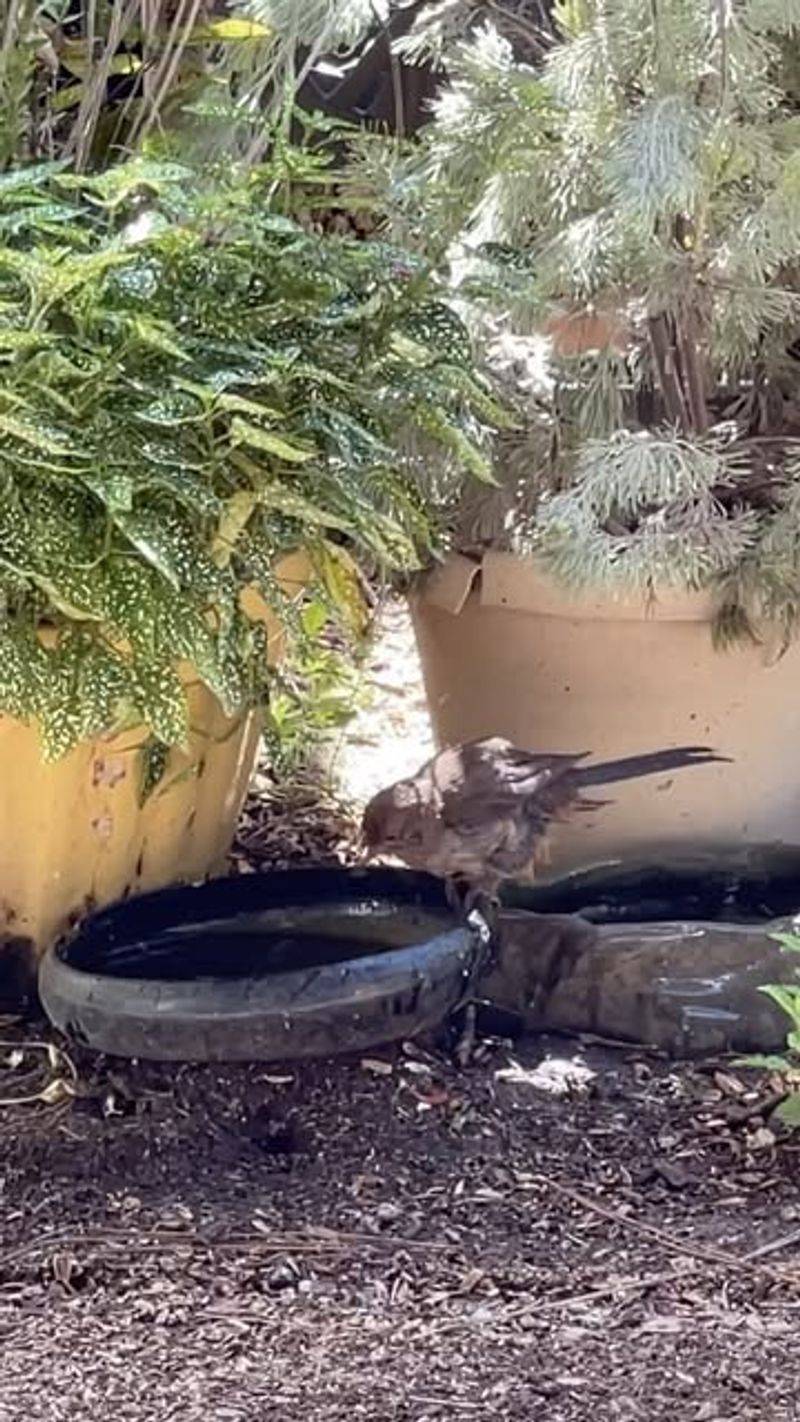
Placing birdbaths in open areas makes birds feel vulnerable to hawks and neighborhood cats. Michigan’s feathered friends need to feel safe while bathing, or they’ll simply avoid your offering altogether.
Position your bath near shrubs or trees where birds can quickly escape if threatened. Many successful Michigan bird hosts place their baths about 10-15 feet from dense cover.
5. Irregular Cleaning
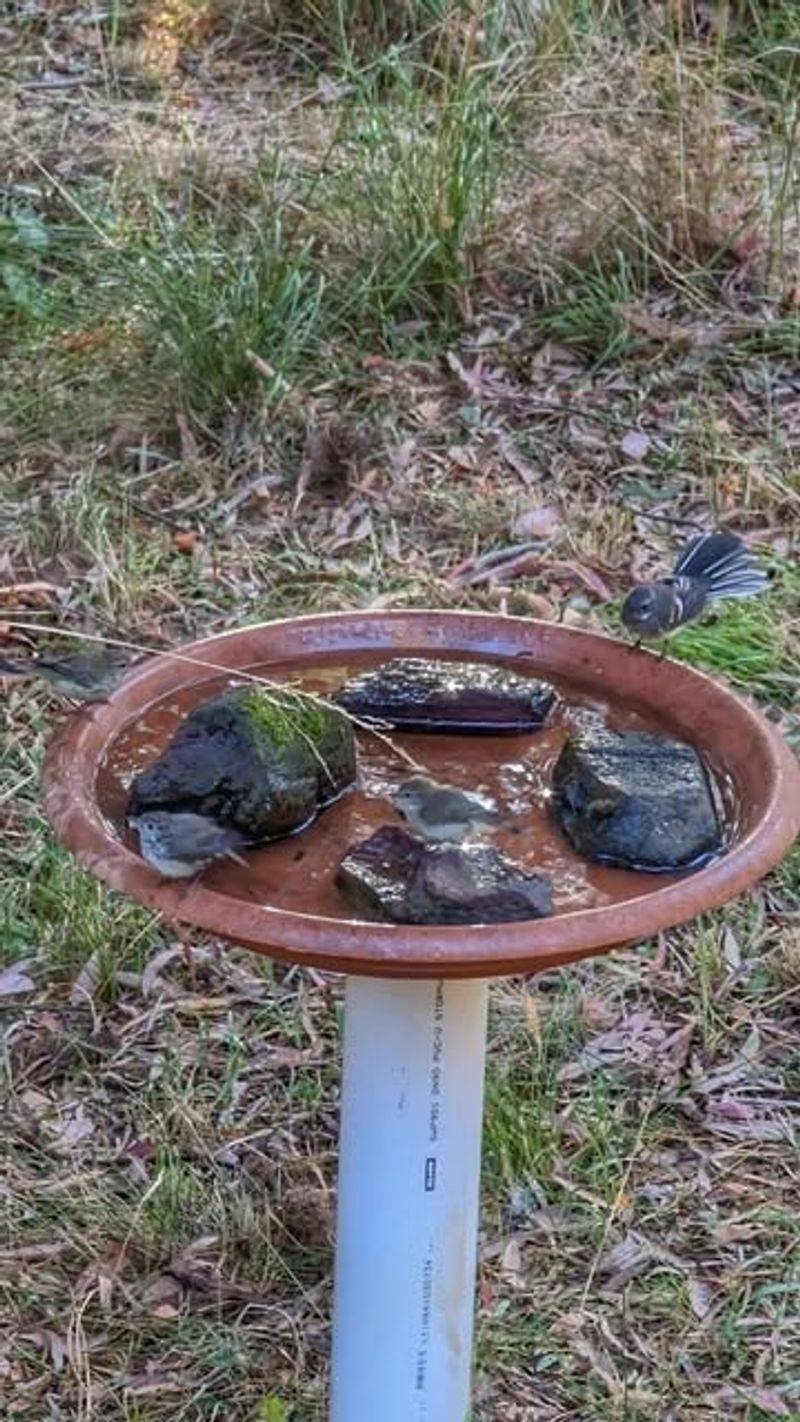
Neglected birdbaths quickly become breeding grounds for harmful bacteria and algae. Michigan’s warm summer days accelerate this process, turning your well-intentioned water feature into a health hazard.
Scrub your bath with a stiff brush every 2-3 days. Michigan birders find that adding a capful of apple cider vinegar to the rinse water helps prevent algae without harming birds.
6. Wintertime Neglect
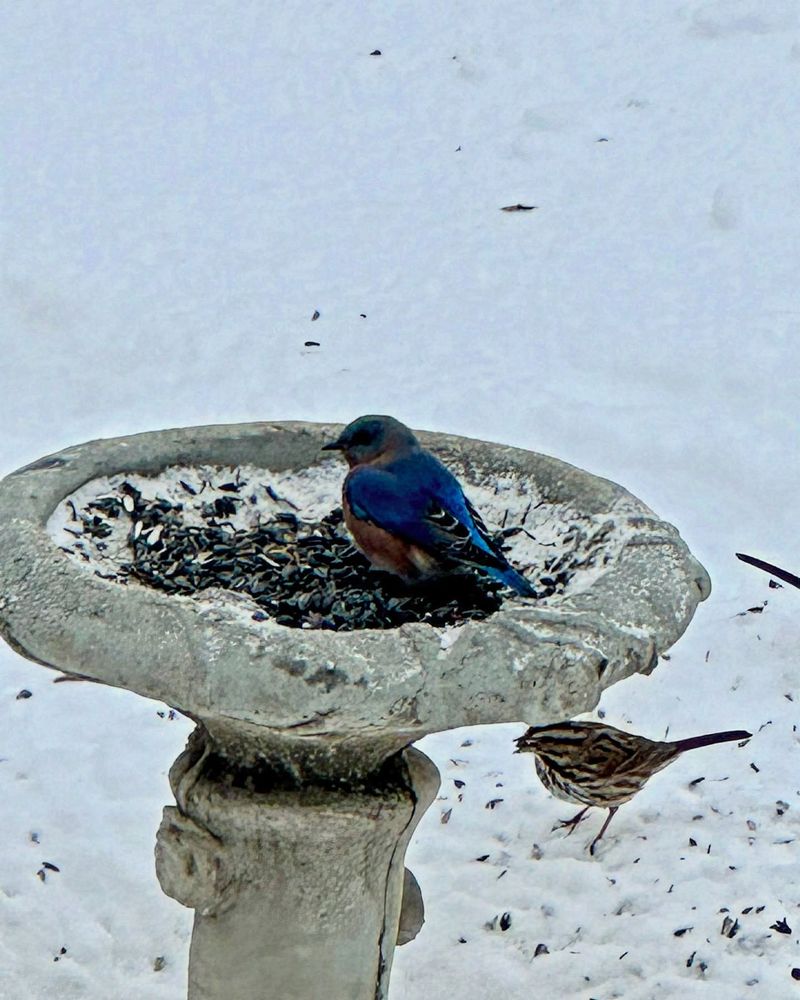
Many Michigan bird lovers pack away their baths when snow flies. Yet winter is when birds struggle most to find unfrozen water! Those that don’t migrate desperately need drinking sources.
Invest in a heated birdbath or add a safe birdbath heater to your existing one. Michigan chickadees, cardinals, and woodpeckers will reward your winter efforts with year-round visits.
7. Insufficient Water Depth
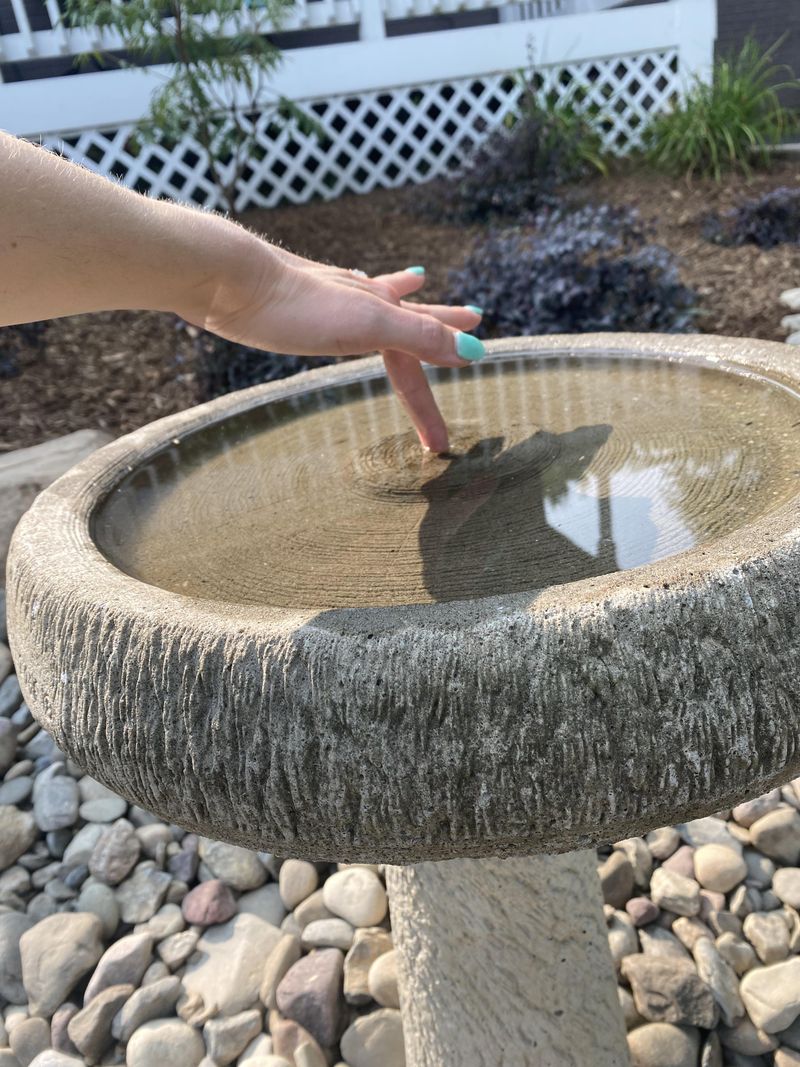
Surprise! While too-deep water scares birds away, baths that are too shallow dry out quickly in Michigan’s summer heat. Birds arrive to find nothing but disappointment and a dusty bowl.
Aim for that sweet spot of 1-2 inches at the deepest point. Michigan bird enthusiasts recommend checking water levels daily during hot weather and refilling as needed.
8. Unattractive Surroundings
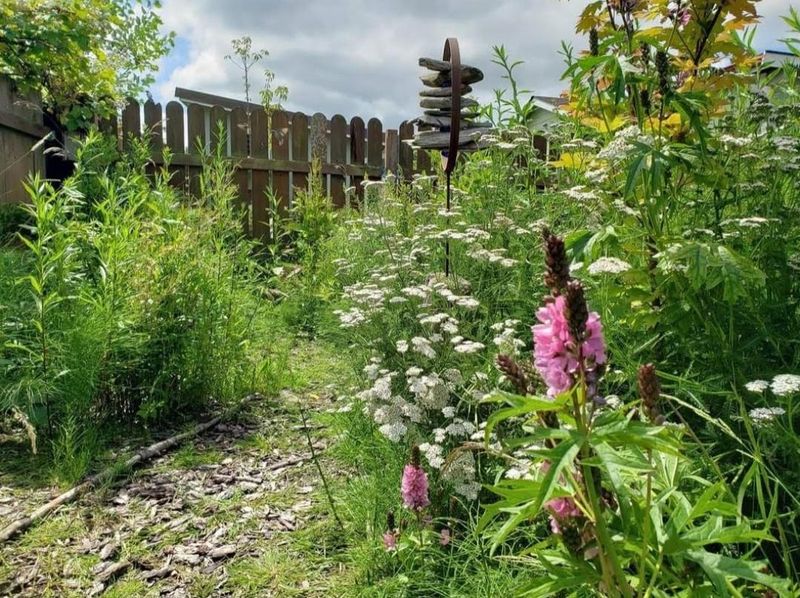
Bare, exposed birdbaths rarely attract the variety of birds Michigan has to offer. Birds prefer environments that provide food and shelter along with bathing opportunities.
Plant native Michigan wildflowers, berry bushes, or seed-bearing plants nearby. The colorful flora not only attracts more birds but also supports Michigan’s natural ecosystem and provides shelter.
9. Competing Water Sources
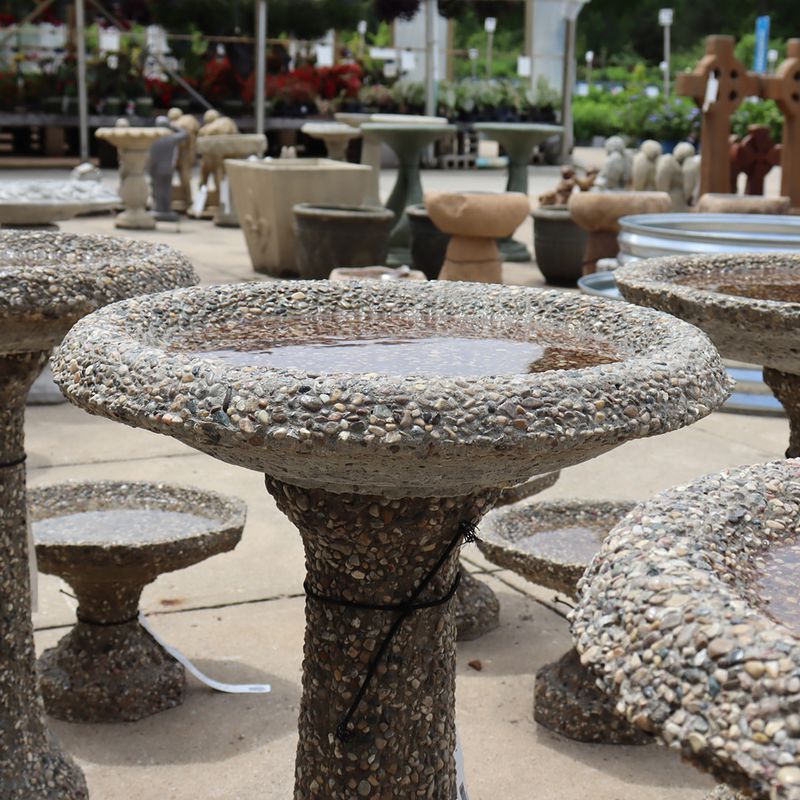
Placing birdbaths too close to feeders creates traffic jams and territorial disputes. Michigan’s blue jays can be particularly aggressive, scaring away smaller species from both feeding and bathing areas.
Space water features at least 10-15 feet from feeders. Michigan bird watchers report more diverse visitors when bathing and feeding stations are nearby but not directly adjacent.
10. Unstable Mounting
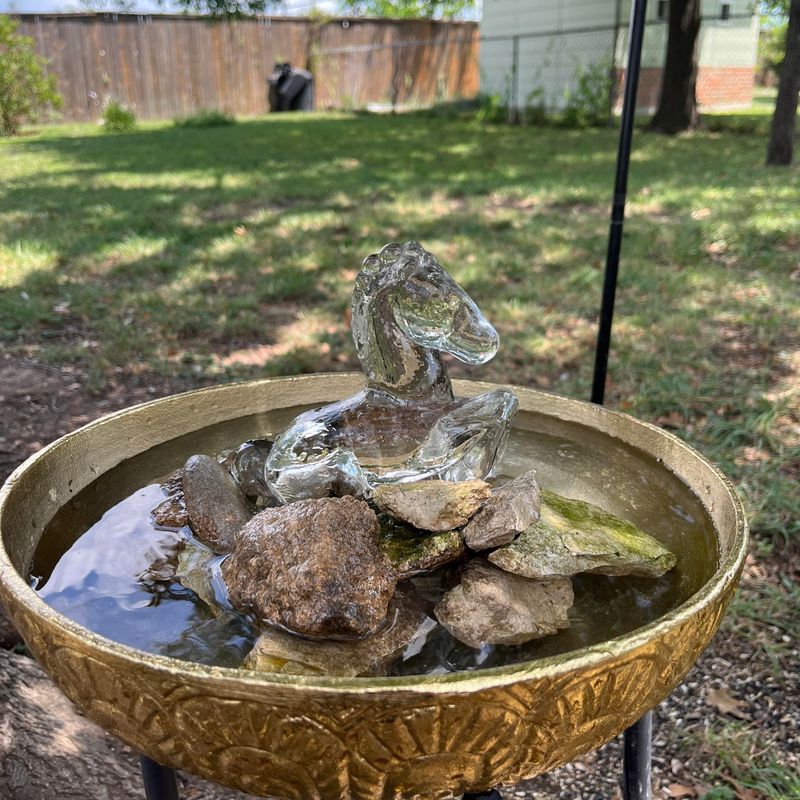
Wobbly birdbaths spill water and scare away cautious birds. Michigan’s freeze-thaw cycles can gradually destabilize even well-installed baths, creating a safety hazard for both birds and the bath itself.
Secure your bath on level ground or use a weighted pedestal. Many Michigan gardeners create a small paver base beneath ground-level baths to prevent shifting throughout changing seasons.


